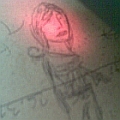BBfanboy
Posts: 18046
Joined: 8/4/2010
From: Winnipeg, MB
Status: offline

|
quote:
ORIGINAL: wdolson
quote:
ORIGINAL: wdolson
The slow down problems have some relation to OS, but it's more hardware than anything else. If you can upgrade your memory, I'd recommend it. Crucial has a memory selection tool, you can enter information on your system, but it can scan your system too if you want:
http://www.crucial.com/usa/en/systemscanner
Crucial is one of the most reliable brands out there. Additionally I've never had a problem with their recommendations, and I've installed a lot of memory. For an older system, the memory is probably going to be very cheap. You should be able to get at least to 2 GB, and most motherboards of that vintage could go to 4 GB. If the system doesn't have enough RAM, it swaps stuff out to disk which is a lot slower than RAM. If you have enough RAM to hold the entire program at once, you won't have to swap out to disk.
AE is very memory intensive, if I remember correctly, it takes about 350 MB to 400 MB of RAM. The OS also takes some memory, so 512 MB is marginal.
We were up to close to 1 GB of RAM at one point, we had to unload a bunch of images from memory and just load them as needed, but a lot of the art needs to remain in memory all the time. The database also needs to reside in memory and it takes up a lot of RAM. This is a very data intensive game.
Bill
quote:
ORIGINAL: RichardAckermann
Thanks. I will take a look at it. I noticed my HD is quite loud with this game.
quote:
If you mean your actual disk, then this would imply to me that your OS is accessing the HDD a lot in order to do one of two things: 1) load/unload/reload items for the game as it needs them, or 2) creating and using a large page file. A page file is essentially HDD space that is used as RAM. It is highly inefficient compared to actual RAM. I'm not sure if Win2K does this - I only used that OS for about six months back in 2002.
If by HD you mean your computer (fans and such, not disk "clicking" and "whirring"), then it would say to me that the machine is struggling overall. RAM almost always helps with this.
It's almost certainly the swap file getting hit because it's running out of RAM. Internally Windows 2K and XP were virtually identical, the internal version number of 2K was 5.0 and XP was 5.1. Xp just added support for some new hardware that came along after 2K was introduced and some changes to the user interface.
The game does load and unload image files on the fly, but there is nothing in there that's going to sense how much RAM you have and get more aggressive about it.
As for working faster in windowed mode, I'm not surprised. DirectX has windowed mode for debugging games and most game programs don't make it available to the end users, but it kind of creates a pseudo virtual machine for debugging purposes that probably bypasses some of the hardware problems with DirectX that are slowing down the game.
Another possibility might be the way newer monitors work. LCD screens work best at their max resolution and the graphics card has to do extra work to step the image down to a smaller resolution. The game is designed to run in 1024X768 mode, though the command line switches allow you to adjust this. If you set the command line switches to the max screen resolution and then ran in full screen it might run as fast, but it still might not. Old CRT monitors didn't have the same quirk with resolution.
Bill
The loud HD also means it is getting full.
The RAM issue causes the computer to go to the HD but the lack of space on the HD causes extreme splitting of files.
On a disk with lots of space the O/S will try to store all the sector-sized chunks sequentially in the same track if possible. When there is not enough space to store all that stuff for the swap file, it must store it wherever it can find unused sectors, over several tracks. The CLUNK you hear is the stepper motor jumping from track to track to find those chunks of the file to read/write.
You can reduce the amount of HD noise by running a defragmentation/disk optimization to reorganize all the files on the HD into sequential fashion. There must be some free space to do this because you can't temporarily move a file unless there is someplace to put it. So the first step is to purge any files no longer used, or easily retrieved from other media. Uninstalling games you are not playing ATM (and putting the saved game files on a DVD or memory stick) is a good way to start. Same goes for picture and video files you seldom access.
EDIT: I looked up how to find the defrag program on my Win 7 system.
Close all programs. Open Windows Explorer ( Windows button + E). Right Click on the C: drive to bring up the properties menu. See the attached pic.

 Attachment (1) Attachment (1)
< Message edited by BBfanboy -- 1/17/2016 3:03:37 PM >
_____________________________
No matter how bad a situation is, you can always make it worse. - Chris Hadfield : An Astronaut's Guide To Life On Earth
|
 Printable Version
Printable Version






















 New Messages
New Messages No New Messages
No New Messages Hot Topic w/ New Messages
Hot Topic w/ New Messages Hot Topic w/o New Messages
Hot Topic w/o New Messages Locked w/ New Messages
Locked w/ New Messages Locked w/o New Messages
Locked w/o New Messages Post New Thread
Post New Thread